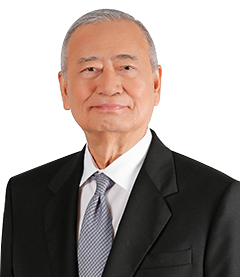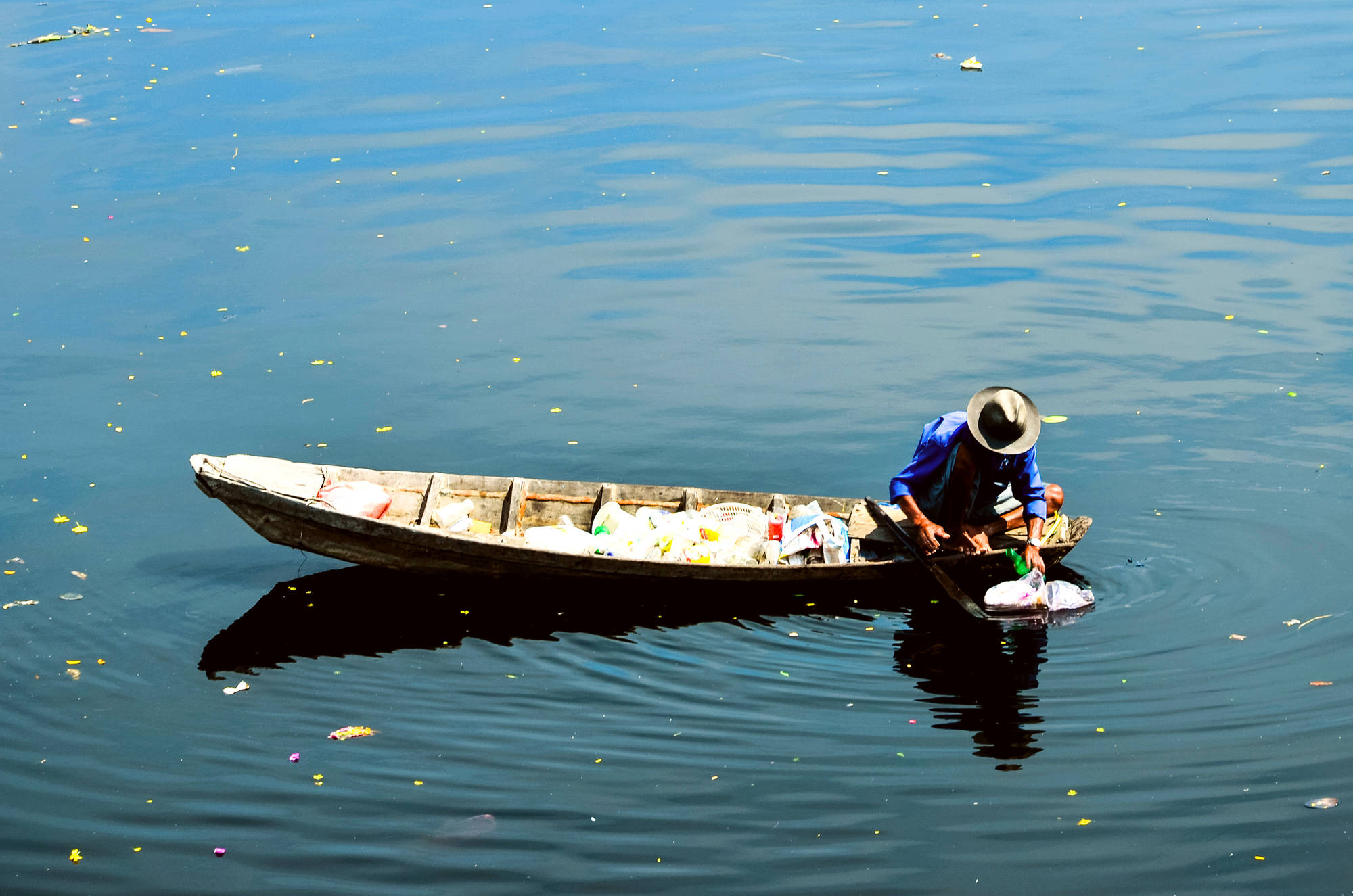-
Audit approach overview
Our audit approach will allow our client's accounting personnel to make the maximum contribution to the audit effort without compromising their ongoing responsibilities
-
Annual and short period audit
At P&A Grant Thornton, we provide annual and short period financial statement audit services that go beyond the normal expectations of our clients. We believe strongly that our best work comes from combining outstanding technical expertise, knowledge and ability with exceptional client-focused service.
-
Review engagement
A review involves limited investigation with a narrower scope than an audit, and is undertaken for the purpose of providing limited assurance that the management’s representations are in accordance with identified financial reporting standards. Our professionals recognize that in order to conduct a quality financial statement review, it is important to look beyond the accounting entries to the underlying activities and operations that give rise to them.
-
Other Related Services
We make it a point to keep our clients abreast of the developments and updates relating to the growing complexities in the accounting world. We offer seminars and trainings on audit- and tax-related matters, such as updates on Accounting Standards, new pronouncements and Bureau of Internal Revenue (BIR) issuances, as well as other developments that affect our clients’ businesses.
-
Tax advisory
With our knowledge of tax laws and audit procedures, we help safeguard the substantive and procedural rights of taxpayers and prevent unwarranted assessments.
-
Tax compliance
We aim to minimize the impact of taxation, enabling you to maximize your potential savings and to expand your business.
-
Corporate services
For clients that want to do business in the Philippines, we assist in determining the appropriate and tax-efficient operating business or investment vehicle and structure to address the objectives of the investor, as well as related incorporation issues.
-
Tax education and advocacy
Our advocacy work focuses on clarifying the interpretation of laws and regulations, suggesting measures to increasingly ease tax compliance, and protecting taxpayer’s rights.
-
Business risk services
Our business risk services cover a wide range of solutions that assist you in identifying, addressing and monitoring risks in your business. Such solutions include external quality assessments of your Internal Audit activities' conformance with standards as well as evaluating its readiness for such an external assessment.
-
Business consulting services
Our business consulting services are aimed at addressing concerns in your operations, processes and systems. Using our extensive knowledge of various industries, we can take a close look at your business processes as we create solutions that can help you mitigate risks to meet your objectives, promote efficiency, and beef up controls.
-
Transaction services
Transaction advisory includes all of our services specifically directed at assisting in investment, mergers and acquisitions, and financing transactions between and among businesses, lenders and governments. Such services include, among others, due diligence reviews, project feasibility studies, financial modelling, model audits and valuation.
-
Forensic advisory
Our forensic advisory services include assessing your vulnerability to fraud and identifying fraud risk factors, and recommending practical solutions to eliminate the gaps. We also provide investigative services to detect and quantify fraud and corruption and to trace assets and data that may have been lost in a fraud event.
-
Cyber advisory
Our focus is to help you identify and manage the cyber risks you might be facing within your organization. Our team can provide detailed, actionable insight that incorporates industry best practices and standards to strengthen your cybersecurity position and help you make informed decisions.
-
ProActive Hotline
Providing support in preventing and detecting fraud by creating a safe and secure whistleblowing system to promote integrity and honesty in the organisation.
-
Accounting services
At P&A Grant Thornton, we handle accounting services for several companies from a wide range of industries. Our approach is highly flexible. You may opt to outsource all your accounting functions, or pass on to us choice activities.
-
Staff augmentation services
We offer Staff Augmentation services where our staff, under the direction and supervision of the company’s officers, perform accounting and accounting-related work.
-
Payroll Processing
Payroll processing services are provided by P&A Grant Thornton Outsourcing Inc. More and more companies are beginning to realize the benefits of outsourcing their noncore activities, and the first to be outsourced is usually the payroll function. Payroll is easy to carve out from the rest of the business since it is usually independent of the other activities or functions within the Accounting Department.
-
Our values
Grant Thornton prides itself on being a values-driven organisation and we have more than 38,500 people in over 130 countries who are passionately committed to these values.
-
Global culture
Our people tell us that our global culture is one of the biggest attractions of a career with Grant Thornton.
-
Learning & development
At Grant Thornton we believe learning and development opportunities allow you to perform at your best every day. And when you are at your best, we are the best at serving our clients
-
Global talent mobility
One of the biggest attractions of a career with Grant Thornton is the opportunity to work on cross-border projects all over the world.
-
Diversity
Diversity helps us meet the demands of a changing world. We value the fact that our people come from all walks of life and that this diversity of experience and perspective makes our organisation stronger as a result.
-
In the community
Many Grant Thornton member firms provide a range of inspirational and generous services to the communities they serve.
-
Behind the Numbers: People of P&A Grant Thornton
Discover the inspiring stories of the individuals who make up our vibrant community. From seasoned veterans to fresh faces, the Purple Tribe is a diverse team united by a shared passion.
-
Fresh Graduates
Fresh Graduates
-
Students
Whether you are starting your career as a graduate or school leaver, P&A Grant Thornton can give you a flying start. We are ambitious. Take the fact that we’re the world’s fastest-growing global accountancy organisation. For our people, that means access to a global organisation and the chance to collaborate with more than 40,000 colleagues around the world. And potentially work in different countries and experience other cultures.
-
Experienced hires
P&A Grant Thornton offers something you can't find anywhere else. This is the opportunity to develop your ideas and thinking while having your efforts recognised from day one. We value the skills and knowledge you bring to Grant Thornton as an experienced professional and look forward to supporting you as you grow you career with our organisation.
INVESTMENTS and in the case of the Philippines, foreign investments, is a big factor in driving economic growth. Unfortunately, for the past many years, the country has been behind most of our neighbor countries in attracting foreign investments. This low performance is a major reason why the Philippines has lagged behind most of the Association of Southeast Asian Nations members in historical economic growth. We simply have not been competitive.
There are several reasons why we have not been competitive. The major one, I believe, is the cost of doing business in the country is comparatively higher. I have discussed the more significant of these higher costs in first part of this article (Manila Times, July 26, 2021) in this commentary series. These are: the cost effects of the business interruptions and damage brought about by the regularly occurring typhoons; the inadequate, slow and therefore, high cost of transport; the comparatively high cost of labor; and the high cost of electricity. I also summarized my plans to lower these costs, the implementation of which will necessarily stretch over time.
We can add to this list another significant cost - the relatively higher cost of compliance with government regulations.
In addition to the costs factor are the unfavorable impressions about non-economic conditions in the country, such as the long-running communist insurgency and the unabated killings-for-hire.
There is also the perceived lack of consistency and therefore predictability of judicial decisions and other government actions on matters relating to business, including taxes.
While we are fixing those higher costs and other problems to attract more foreign investments to propel economic growth, we must simultaneously enhance the growth of those economic activities we are already significantly engaged in.
First and foremost is transforming our agriculture which I discussed in an earlier article in this series.
Main economic drivers
The two main drivers of our economic growth are the offshore work brought to our shores and the Filipino skills and labor we take to foreign shores. These economic sources fuel the household consumption component in the demand side of our economy, which comprised a very large proportion, 72.4 percent, of our gross domestic product in 2019. We need to protect and enhance these economic activities, especially the offshore work which is easily portable and can disappear quickly.
Tourism is a very promising economic growth driver. We have more than sufficient manpower for this economic activity. We churn out quite a number of college graduates in the hospitality industry every year.
In addition to these major activities we are already doing, we need to engage in activities with higher economic value which we are still not doing in any significant way.
If I were the next president, I would steer our economic growth towards the major contents and direction outlined above.
We will deliberately reduce the cost of compliance with government regulations by eliminating overlapping and unnecessary requirements and shortening the compliance time for the others. For this purpose, I will require all national government departments and agencies to reduce by at least half, in terms of compliance time, all of their respective regulatory requirements. I will require them to form dedicated small groups, for as many as necessary, in their respective offices to identify the areas where these can be done and to lead the implementation of the changes. We will get all these things completed in one or two years.
I will direct the Department of Interior and Local Government to require all the local government units (LGUs) to do the same.
Engaging LGUs
The Anti-Red Tape Authority (ARTA), under the Office of the President, the newly established government agency given such responsibilities cannot do these tasks alone by itself within reasonable time. ARTA may be better able to do its job after the national government departments and agencies and LGUs have done their own major pruning.
Included in my plan of engaging the LGUs in nation-building, which will be presented in the next article this series, is to reorient the purpose of the barangay (village) system. Forming part of reorientation is to remove the barangay entirely from the layers of government regulation. Doing so will significantly contribute to reducing the cost of compliance with government regulatory requirements.
The long-continuing communist insurgency and the killings-for-hire which certainly contribute to deterring investments will be dealt with separately. In any event, we will endeavor to put an end to the former and substantially eradicate the latter. Both of these, I am confident, can be done.
Our administration will be actively involved in upholding consistency and fairness in judicial decisions and other government actions on matters relating to business, investments and taxes.
In driving for higher economic growth, we will give priority attention to transforming agriculture, as discussed in a previous article in this series, to substantially increase agricultural productivity and therefore agricultural output. Part of increased output will be directed towards developing fresh and processed agricultural foods for export.
We will be watchful of the developments in offshore work in the country and adjust to these developments to keep the activities we already have and acquire more. As to the latter, we will keep in step with developing new sectors of outsourcing work and enhance the necessary manpower skills to adequately meet their specific requirements.
To drive up tourism, I will direct the Department of Tourism to identify the potential but still undeveloped tourist destinations and, together with the Department of Public Works and Highways, develop and implement plans for constructing all the necessary infrastructures within reasonably established time frames. These additional tourist destinations will certainly create more employment.
Select group
We will form a select top-level group of business leaders and economists to identify the economic activities the country can develop to produce higher value economic goods. Their work will include the specifications of the infrastructures and people skills that need to be developed or enhanced to meet the requirements of the chosen higher value economic activities.
While I will leave to this select group to make the strategic and doable choices, certain activities come to mind may be suitable to overall Philippine conditions. These are: establishing the country as a center for research and development; state-of-the art shipbuilding (suitable to an archipelagic country like the Philippines); manufacturing of airplane components and similar high-value parts; and production or assembly of products involving applications of current information and communication technologies, robotics, and artificial intelligence.
Many Filipinos have studied and continue to study Master in Business Administration in well-known schools abroad. Many, if not the majority, of them, specialized and are specializing in finance. These available high education knowledge and skills fit neatly in developing a regional capital market center, especially in anticipation of the decline of Hong Kong in this sphere. When we do, we will tighten up and apply rigorously the appropriate regulatory controls required in maintaining a reliable and well-functioning capital market.
As we move along implementing these activities to get the country to leapfrog to higher economic growth, we will establish the necessary processes to make sure there is proper coordination among those involved and any slacks are quickly identified and remedied.
We will exert seriousness of purpose in implementing all of these activities to successfully reach our goals and thus enable the Philippines to catch up and even exceed our neighbors or some of them in economic performance, a position we have attained many, many years before. We can and will do it!
The author is the founder of the Buklod national political party.
As published in The Manila Times, dated 27 July 2021




